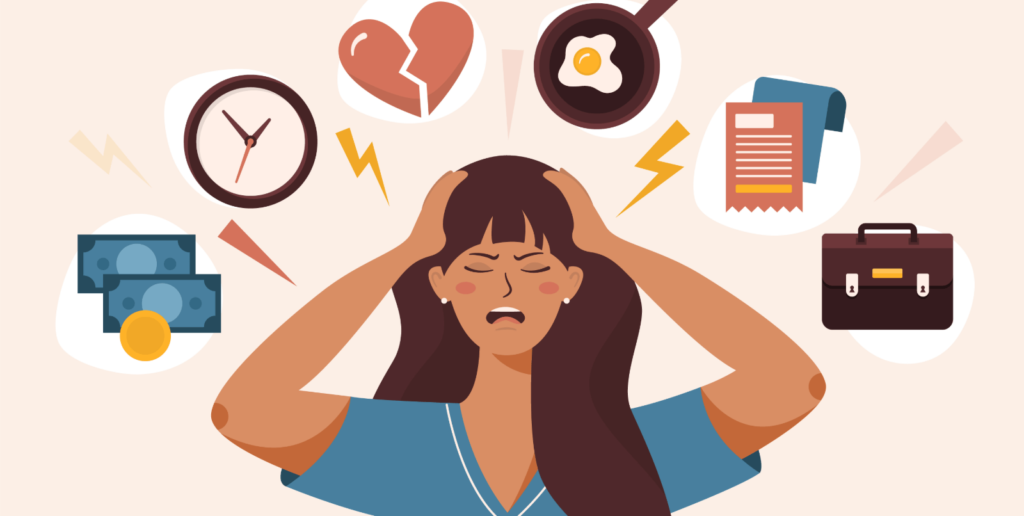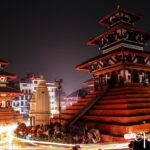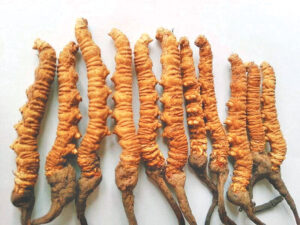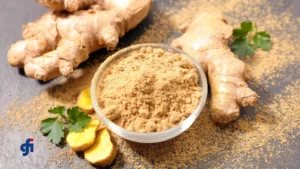Anxiety:
Anxiety is a common human feeling that everybody encounters at a few point in life. It’s the body’s reaction to push or a potential danger, planning us to confront a challenge or elude from threat. In any case, when uneasiness gets to be constant, overpowering, or happens without a clear trigger, it can lead to weakening encounters that influence a person’s quality of life. One of the most strongly signs of uneasiness is a freeze attack—an intense scene of overpowering fear that may happen abruptly and unexpectedly.
In this article, we will investigate uneasiness and freeze assaults in profundity: what they are, their causes, side effects, and compelling methodologies for overseeing and overcoming them.
What is Anxiety?
Anxiety is a mental and physiological state characterized by sentiments of stress, trepidation, or fear. In little measurements, uneasiness can be beneficial—it can spur you to take activity, plan for an exam, or react to a perilous circumstance. Be that as it may, when uneasiness gets to be over the top or happens in regular circumstances, it can meddled with every day functioning.
Common shapes of uneasiness include:
- Generalized Uneasiness Clutter (GAD): A condition characterized by constant, overstated stress almost ordinary issues such as wellbeing, work, connections, or budgetary matters.
- Social Uneasiness Clutter: A condition where people encounter seriously fear of social circumstances or being judged by others.
- Fears: Over the top and nonsensical fear of particular objects, circumstances, or occasions, such as statures, creatures, or flying.
- Obsessive-Compulsive Clutter (OCD): A condition in which people involvement meddlesome, undesirable contemplations (fixations) and lock in in monotonous behaviors (compulsions) to lighten their anxiety.
- Post-Traumatic Push Clutter (PTSD): Uneasiness that creates after presentation to a traumatic occasion, driving to flashbacks, bad dreams, and increased uneasiness levels.
What is a Anxiety Attack?
A freeze assault is a sudden scene of seriously fear that triggers serious physical responses when there is no genuine peril or clear cause. These assaults can be unimaginably startling, as they frequently happen without caution and can make the person feel as in spite of the fact that they are losing control, having a heart assault, or indeed passing on. Freeze assaults more often than not top inside 10 minutes but may final longer depending on the individual.
Panic assaults may happen in confinement or as portion of a freeze clutter. Freeze clutter is a condition in which an person encounters repetitive and unforeseen freeze assaults, went with by determined concern approximately having more assaults or maintaining a strategic distance from circumstances that might trigger them.
Indications of Uneasiness and Freeze Attacks
Anxiety and freeze assaults share a few common side effects, but there are key contrasts between them.
Symptoms of Anxiety:
- Determined stress or over the top fear
- Fretfulness or feeling on edge
- Weakness or trouble resting (insomnia)
- Trouble concentrating
- Irritability
- Muscle tension
- Sweating or trembling
- Expanded heart rate or palpitations
- Shirking of certain circumstances or places to avoid anxiety
Symptoms of Freeze Attacks:
- Fast pulse or palpitations
- Shortness of breath or a feeling of being incapable to breathe
- Chest torment or discomfort
- Tipsiness, discombobulation, or feeling faint
- Sweating, chills, or hot flashes
- Trembling or shaking
- Sickness or stomach distress
- Fear of losing control or going crazy
- Sentiments of separation from reality or oneself (derealization or depersonalization)
- Strongly fear of passing on or looming doom
Panic assaults regularly show up without caution, and their concentrated can be overpowering, making them one of the most challenging perspectives of uneasiness disorders.
Causes of Uneasiness and Freeze Attacks
The correct causes of uneasiness and freeze assaults can change from individual to individual, but they are ordinarily the result of a combination of natural, mental, and natural factors.
- Hereditary qualities: There is prove to propose that uneasiness clutters run in families. People with a family history of uneasiness disarranges may be more likely to encounter uneasiness or freeze attacks.
- Brain Chemistry: Neurotransmitters such as serotonin, dopamine, and gamma-aminobutyric corrosive (GABA) play a critical part in directing disposition and uneasiness. An awkwardness in these chemicals can contribute to uneasiness and freeze disorders.
- Identity Variables: Certain identity characteristics, such as being inclined to hairsplitting, being excessively self-critical, or having a increased sense of duty, can increment defenselessness to anxiety.
- Injury or Stretch: Past traumatic encounters, such as childhood manhandle, disregard, or critical life changes (e.g., separate, work misfortune), can trigger uneasiness disarranges. Additionally, constant push from work, connections, or money related concerns can increment anxiety.
- Restorative Conditions: Certain therapeutic conditions, such as heart illness, diabetes, thyroid issues, or respiratory clutters, can compound uneasiness side effects. Also, a few solutions or substances (e.g., caffeine, liquor, drugs) can trigger or decline anxiety.
- Natural Variables: Unpleasant life occasions, such as moving, beginning a modern work, or encountering the misfortune of a adored one, can contribute to uneasiness and freeze assaults. Natural variables like an unsteady domestic life, work weight, or social confinement can too play a role.
Overseeing Uneasiness and Freeze Attacks
While uneasiness and freeze assaults can feel overpowering, they are treatable, and numerous techniques can offer assistance oversee and diminish side effects. Underneath are a few compelling strategies for overseeing uneasiness and freeze attacks:
- Breathing Works out: Freeze assaults frequently cause hyperventilation, which can make side effects more regrettable. Controlled breathing works out, such as profound stomach breathing, can offer assistance moderate down the heart rate and diminish sentiments of freeze. Taking moderate, profound breaths and centering on breathing out longer than breathing in can calm the body amid an attack.
- Cognitive Behavioral Treatment (CBT): CBT is a exceedingly successful frame of treatment for treating uneasiness and freeze clutters. It makes a difference people recognize and challenge nonsensical considerations that fuel uneasiness and supplant them with more adjusted, reasonable contemplations. By reframing thought designs, people can decrease the concentrated of their anxiety.
- Mindfulness and Contemplation: Mindfulness includes centering on the show minute without judgment. It makes a difference people gotten to be mindful of their contemplations and sentiments without getting to be overpowered by them. Hones like mindfulness reflection can decrease in general uneasiness levels and avoid freeze assaults by advancing unwinding and a sense of control.
- Physical Work out: Standard physical movement is an amazing way to diminish uneasiness. Work out increments the generation of endorphins, which are normal temperament enhancers, and decreases levels of stretch hormones such as cortisol. Exercises like strolling, running, yoga, and swimming can be especially accommodating for overseeing anxiety.
- Medicine: In a few cases, pharmaceutical may be endorsed to oversee uneasiness and freeze clutters. Common drugs incorporate particular serotonin reuptake inhibitors (SSRIs), benzodiazepines, and beta-blockers. These solutions can offer assistance direct brain chemistry and diminish the seriousness of uneasiness side effects, but they are more often than not utilized in conjunction with therapy.
When to Look for Help
While everybody encounters uneasiness from time to time, it’s fundamental to look for proficient offer assistance if uneasiness or freeze assaults are influencing your every day life, connections, or capacity to work. A mental wellbeing proficient can give a determination, offer treatment choices, and suggest way of life changes or medicine if needed.
If you encounter the taking after, it may be time to reach out for help:
- Visit or repeating freeze attacks
- Tireless, wild stress or fear
- Shirking of ordinary exercises or social circumstances due to anxiety
- Trouble resting or concentrating
- Seriously fear of taking off the house (agoraphobia)
- Side effects of uneasiness that meddled with your work or individual life
Conclusion
Anxiety and freeze assaults can be fantastically troubling, but they do not have to control your life. With the right methodologies likewise devices, and proficient back, you can oversee and diminish uneasiness, recapture a sense of control, and live a satisfying life. Understanding your triggers, practicing unwinding strategies, and looking for treatment when required can make a world of contrast in overcoming the challenges of uneasiness.

Related:
Immunization Programs in Nepal: An Overview
Essential Nutrients for Healthy Child Development












2 thoughts on “Anxiety and Panic Attacks”